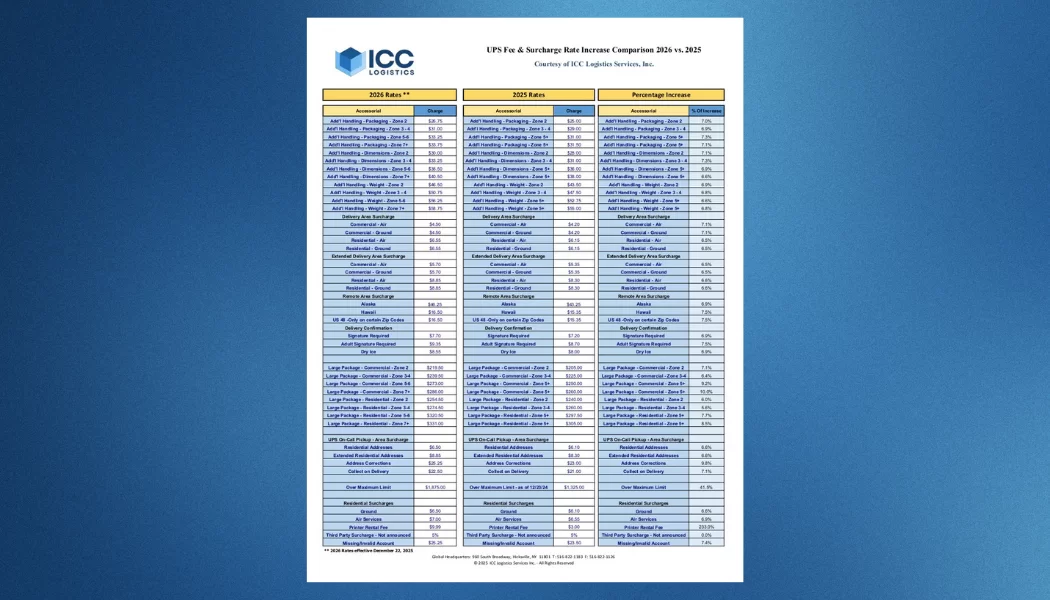From Chaos to Control: Selecting The Perfect Logistics Partner and Carriers
When selecting a logistics services supplier, there are several key factors to consider:
- Reliability
- Expertise
- Experience
- Scalability
- Technology
- Communication
- Customer Service
- And last, but not least, Cost
By considering these factors, you will choose a logistics services supplier that meets your needs and helps you streamline your supply chain for maximum efficiency and cost-effectiveness.
How do I find, select, and manage logistics suppliers to meet my company’s needs and goals?
You can find logistics suppliers through various channels, including online searches, industry publications, trade shows, and referrals from other businesses. However, the best source for finding the “best of the best” logistics service providers is to rely on industry experts who have first-hand experience on which suppliers would be best for your business. Remember this is a not “one size fits all” business decision. All potential suppliers should be evaluated based upon the factors listed above, and we can help you with that process by also considering their physical locations and the types of goods they may specialize in servicing.
Once you have selected a logistics supplier, it is important to establish clear communication channels and expectations. You should conduct regular reviews of their performance to ensure that they are meeting, and hopefully, exceeding your needs and goals.
You should also consider implementing a formal supplier management program, to help track performance metrics, identify areas for improvement, while building a stronger relationship with your logistics suppliers and carriers. This can help ensure that your logistics operations are efficient, reliable, and cost-effective.
How can I build long-term partnerships with my suppliers and carriers?
Building long-term partnerships with your suppliers will be mutually beneficial for both parties.
- Communicate regularly: Establish open lines of communication with your suppliers and regularly provide feedback on their performance. This will help identify issues early on, and work together to resolve them.
- Build trust: Trust is a critical component of any successful partnership. Be transparent about your expectations, treat your suppliers fairly, and follow through on your commitments.
- Foster collaboration: Encourage your suppliers to collaborate with you on finding ways to improve your business operations. This will help build a sense of partnership and shared goals.
- Provide incentives: Offer incentives to your suppliers for meeting or exceeding performance goals. This will motivate them to go above and beyond in delivering value to your company.
- Share information: Share all relevant information with your suppliers to help them better understand your business needs and goals, this way they can tailor their services to better meet your needs.
- Invest in supplier development: Invest in developing the capabilities of your suppliers. This can help them become more valuable partners over time.
- Conduct periodic reviews: Regularly evaluate your suppliers’ performance and provide feedback. This will help you identify areas for improvement and work together to address any issues.
Before I start looking for potential suppliers and carriers, how will I define sourcing objectives and criteria?
Defining sourcing objectives and criteria is the critical first step in selecting the right logistics supplier. Before you start looking for potential suppliers, consider the following steps:
- Define your sourcing objectives: Identify the key business needs that your sourcing strategy aims to address. Is it to reduce costs, improve quality, increase flexibility, or enhance innovation, or all of the above?
- Identify your criteria: Based on your sourcing objectives, develop a list of criteria that you will use to evaluate potential suppliers. Include all the factors listed at the beginning of the article: Reliability, Expertise, Experience, Scalability, Technology, Communication, Customer Service, and last, but not least, Cost.
- Prioritize your criteria: Determine those criteria most important to your business needs and rank them in order of priority so you focus on suppliers that best meet your key requirements.
- Establish metrics for evaluation: Develop metrics to measure supplier performance against your criteria. These metrics may include delivery times, defect rates, safety records, customer service, and innovation.
- Determine your budget: Establish a budget for your sourcing strategy that takes into account the cost of goods, transportation, and all other related expenses.
Having your sourcing objectives and criteria clearly defined will allow you to align with your business needs and help identify potential suppliers that best meet your requirements. This will ultimately lead to a successful supplier selection process.
Do my plans match the expectations of corporate management?
It is important that your sourcing strategy and plans are aligned with the overall goals and expectations of your corporate management. You should work closely with other departments within your organization, such as finance and procurement, to ensure your plans are integrated with broader business processes and systems.
Communicate your sourcing strategy and plans clearly and regularly with senior management to obtain buy-in from key stakeholders, identify any potential issues or areas of concern, and ensure your plans are aligned with broader business objectives.
What should be my key requirements and expectations for my suppliers and carriers?
At the risk of repeating ourselves, there are several common requirements and expectations important for most supplier relationships:
- Quality: You likely have a minimum quality standard that your suppliers must meet, and you may establish specific quality metrics and requirements for the goods or services they provide.
- Reliability: You expect your suppliers to deliver goods or services on time and according to agreed-upon specifications.
- Cost-effectiveness: You want your suppliers to offer competitive pricing for the goods or services they provide, and you expect them to identify opportunities to reduce costs in the supply chain.
- Communication: You expect your suppliers to communicate with you regularly and proactively about any issues or concerns that arise while doing business together.
- Flexibility: You require your suppliers to be flexible and responsive to changes in demand or market conditions and be willing to adjust their operations or processes as needed.
- Innovation: You look to your suppliers to provide new ideas, products, or services that will help your business stay competitive and drive growth.
- Sustainability: You expect your suppliers to adhere to environmental, social, and governance standards, and to demonstrate a commitment to sustainability and responsible business practices.
By clearly defining these requirements and expectations to your suppliers, and communicating with them effectively, you will ensure your supplier relationships are productive, efficient, and aligned with your business goals.
How will I measure and evaluate their performance?
You need to establish a set of key performance indicators (KPIs) that align with your sourcing objectives and requirements.
Once you have established your KPIs, set performance targets for each metric, and track supplier performance against these targets on an ongoing basis. Conduct regular supplier reviews, during which you will provide feedback on their performance, identify areas for improvement, and work collaboratively to address any issues or concerns.
Do I want a partner mindset versus a supplier mindset?
Is your goal to drive cost down to the lowest possible denominator or to add value, quality, efficiency and service to the process? Adopting the proper mindset sets the stage for your supplier relationships. Follow your company philosophy to determine which mindset approach you will take with your suppliers.
A supplier mindset typically involves viewing suppliers as simply transactional entities that provide goods or services in exchange for payment. In this mindset, the focus is often on negotiating the best possible price or contract terms, with little consideration for the supplier’s long-term success or strategic value to the business.
A partner mindset involves viewing suppliers as strategic partners and collaborators in the supply chain. In this mindset, the focus is on building strong, collaborative relationships with suppliers based on mutual trust, respect, and a shared commitment to achieving common goals.
When working with a partner mindset, the goal is not just to secure the best price or contract terms, but also to create value for both parties by working together to identify opportunities for mutual growth and success. This involves sharing information, collaborating on product or service development, or jointly exploring new markets or business models.
If you choose a partner mindset, spend your time researching supply partners that will go above and beyond to not only meet your needs but excel and add value you didn’t know existed. Overall, investing in the development of strong supply partnerships will help unlock new opportunities for growth and value creation, and establish a competitive advantage in your industry.
By creating this partner framework, you will define your sourcing objectives and criteria, establish a set of KPIs for measuring supplier performance, and develop a process for selecting, evaluating, and managing suppliers.
By communicating your sourcing strategy and plans effectively to key stakeholders, including senior management, other departments within your organization, and your suppliers themselves, you build strong and lasting relationships with your suppliers, optimize your supply chain, and drive growth and profitability for your business.
One of the biggest challenges today’s supply chain and logistics executives have is how to find the “right” suppliers and carriers to meet their company’s needs. At ICC Logistics, we take great pride in our 45 plus year history and vast industry experience in helping companies build long-term, “win-win” strategic business relationships. Relationships that result in sustainable on-time delivery, improved service to the customer, innovative technology solutions while at the same time driving cost savings to enhance our clients bottom line.
Our services are flexible, responsive and ensure we meet and exceed our clients’ expectations. Give us a call today at 516 822-1183 and learn how we can help you find the right supply chain and logistics partners for your business success.



 to receive our FREE white papers:
to receive our FREE white papers: